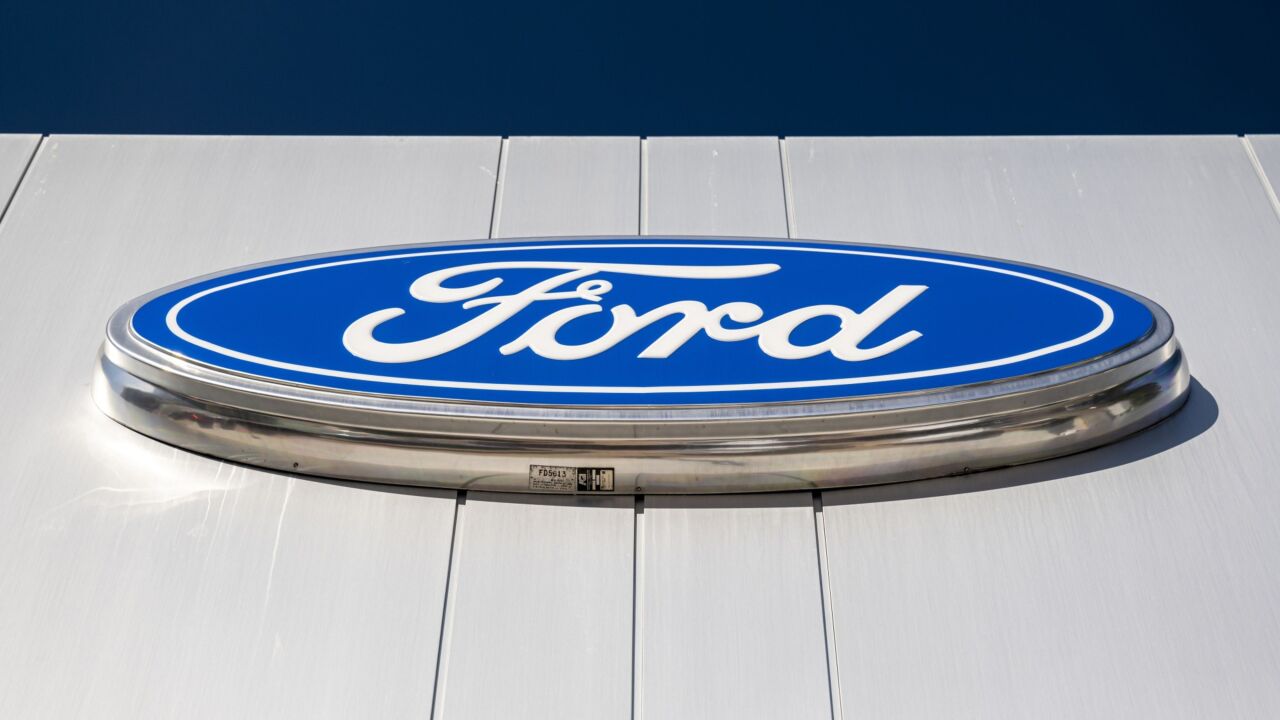Four consumer groups are asking the Federal Deposit Insurance Corp. to deny Ford Motor Co.'s industrial loan charter application.
The National Community Reinvestment Coalition, the National Consumer Law Center, Americans for Financial Reform Education Fund and the Center for Responsible Lending said in a letter to the FDIC that allowing Ford to own a bank would open the door for other companies outside of the financial system to mix commerce and banking.
The groups also argued that Ford's application raises privacy concerns and raised objections about the automaker's community reinvestment plans.

"Granting deposit insurance to this applicant creates a dangerous mix of commerce and banking, would permit a charter to an entity that has not made a community reinvestment commitment that is commensurate with its size and would create the grounds for a Big Tech data surveillance operation to break the barriers meant to protect consumer privacy," the groups wrote in the letter.
The
ILCs owned by automakers aren't unprecedented — Toyota and BMW already operate industrial banks — but the consumer groups argued that such institutions pose risks.
"Automobile manufacturers rely on captive financing divisions to support retail sales," the groups wrote in the letter. "While the benefit of lower-cost deposits as a substitute for commercial debt and equity financing benefits manufacturers, it increases the interdependence between financing and manufacturing divisions, leading to correlated risks that undermine safety and soundness."
Ford's application relies heavily on the pitch that the company will use Ford Credit to finance electric vehicles, a priority of the Biden administration.
The consumer groups argued in their letter that Ford's ability to invest in electric vehicles isn't dependent on owning an industrial bank. They noted that a wide range of tax credit and other funding opportunities for customers and companies are available under President Biden.
"The FDIC should not permit an automaker to leverage a shift in strategic operations to secure the privilege of having a bank charter, and instead view this new messaging as the latest ploy to achieve a long-desired goal of Ford Motor," the groups said in the letter.
Ford Motor Co.'s application for an industrial loan company charter with the Federal Deposit Insurance Corp. will compel the regulator to articulate its stance on future applications.
The consumer organizations also argued that a Ford ILC could pose a risk to consumer privacy. Ford's finance arm and its car-selling arm can share information. In modern cars with GPS trackers, such data sharing can reveal sensitive information.
"Data may be purely operational — such as the temperature of the car cabin or if the driver uses a seat belt — but it can also reveal inferences about shopping habits," the groups wrote.
"Geolocation data — such as time spent parked at Whole Foods or the payday lender — is created in real-time and all the time."
In addition to the pushback from consumer groups, Ford's application has elicited criticism from banking trade associations. Earlier this month, the Independent Community Banks of America






